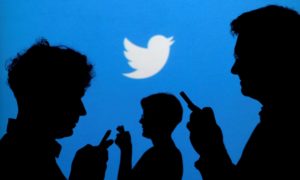Aug
12
2019
 This was highly predictable. Of course there are conspiracies surrounding the apparent recent suicide of Jeffrey Epstein while in prison. That’s just background noise now. There are conspiracies about everything. Apparently the two shootings last weekend were false flag operations, because #conspiracies.
This was highly predictable. Of course there are conspiracies surrounding the apparent recent suicide of Jeffrey Epstein while in prison. That’s just background noise now. There are conspiracies about everything. Apparently the two shootings last weekend were false flag operations, because #conspiracies.
Just as predictably, news about the conspiracy theories, how they spread, and how they are treated by the media is itself news. And yes I get the irony that here I am blogging about it. It’s turtles all the way down. I guess in order to have something interesting to say I have to get one level more meta than everyone else – does that do it? Getting meta about being meta?
By now this phenomenon is old news. The traditional editorial filters are no longer in place. They have largely been replaced by algorithms which determine which news items are “trending.” This becomes a self-reinforcing feedback loop that allows the worst information to spread. Of course, this has always happened. Sensationalism and propaganda spread because they are interesting. They break up the mundane monotony of our lives. They are a real-life soap opera.
Jonathan Swift observed in 1710, “Falsehood flies, and the Truth comes limping after it.” There are also several versions of, “A Lie Can Travel Halfway Around the World While the Truth Is Putting On Its Shoes.” The source of this quote, often mistakingly attributed to Mark Twain, is unclear. The point is – the inherent advantage that false but sensational information has in the human mind over prosaic truth has long been observed. And that, of course, is the ultimate medium, the human mind. The external method of spreading false information is incidental to the core phenomenon, but it can influence the speed with which such information spreads and the credibility it is given.
Continue Reading »
Oct
22
2018
 In testimony before congress, Mark Zuckerberg predicted that artificially intelligent algorithms that will be able to filter out “fake news” will be available in 5-10 years. In a recent NYT editorial, neuroscientist Gary Marcus and computer scientist Ernest Davis argue that this prediction is overly optimistic. I think both sides have a point, so let’s dissect their arguments a bit.
In testimony before congress, Mark Zuckerberg predicted that artificially intelligent algorithms that will be able to filter out “fake news” will be available in 5-10 years. In a recent NYT editorial, neuroscientist Gary Marcus and computer scientist Ernest Davis argue that this prediction is overly optimistic. I think both sides have a point, so let’s dissect their arguments a bit.
Fake news is the recently popular term for deliberate and often strategic propaganda masquerading as real news. There is, of course, a continuum from rigorous and fair journalism to 100% fakery, with lots of biased, ideological, and simply lazy reporting along the way. This has always existed, but seems to be on the rise due to the ease of spread through social media. Accusations of fake news have also been on the rise, as a strategy for dismissing any news that is unwanted or inconvenient.
Obviously this is a deep social issue that will not be solved by any computer algorithm. I would argue the only real solution is to foster a well-educated electorate with the critical thinking skills to sort out real from fake news. That is a worthwhile and long term goal, but even if successful there will always be a problem with fake news, regardless of the medium of its spread.
The real context here is the role that social media serves in spreading fake news. The reason that Zuckerberg, the creator of Facebook, is involved is because Facebook and other social media platforms have become a main source of news for many people. Further, they represent a new model for pairing people with the news they want.
The traditional model is to build respected news outlets who cultivate a reputation for quality and have a heavy editorial policy that filters the news. People then go to news outlets they respect, and get whatever news is fed to them, perhaps divided into sections of interest. But even this model has always been corrupted by ideologically biased editorial policy, and by sensationalism. You can attract eyes not only through well-earned respect by providing quality, but also by sensational headlines, or by catering to preexisting world-views.
Continue Reading »
Mar
09
2018
 The battle between truth and fiction is asymmetrical. While that seems to be the case, now we have some empirical evidence to back up this conclusion. In a recent study researchers report:
The battle between truth and fiction is asymmetrical. While that seems to be the case, now we have some empirical evidence to back up this conclusion. In a recent study researchers report:
To understand how false news spreads, Vosoughi et al. used a data set of rumor cascades on Twitter from 2006 to 2017. About 126,000 rumors were spread by ∼3 million people. False news reached more people than the truth; the top 1% of false news cascades diffused to between 1000 and 100,000 people, whereas the truth rarely diffused to more than 1000 people. Falsehood also diffused faster than the truth. The degree of novelty and the emotional reactions of recipients may be responsible for the differences observed.
This reflects the inherent asymmetry. Factual information is constrained by reality. You can also look at it as factual information is optimized to be true and accurate. While false information is not constrained by reality and can be optimized to evoke an emotional reaction, to be good storytelling, and for drama.
We see this in many contexts. In medicine, the rise of so-called alternative medicine has been greatly aided by the fact that alternative practitioners can tell patients what they want to hear. They can craft their diagnoses and treatments for optimal marketing, rather than optimal outcomes.
Continue Reading »
Apr
07
2017

Pierre Omidyar, founder of eBay, is one of the world’s richest men. He recently announced that his philanthropic investment firm will dedicate $100 million to combat the “global trust deficit.” By this he means the current lack of trust in information and institutions born by the age of misinformation, fake news, and alternative facts.
I agree that this is a phenomenon that needs to be studied and tackled, but I hope that he is just getting started with the $100 million, because it’s going to take a lot more than that. I also don’t think we can rely on a few philanthropists to fix this problem.
As an aside I find it historically interesting that the internet boom lead to a crop of very young very rich people, not only Omidyar but also Bezos, Musk, Zuckerberg and others. Omidyar notes that:
“We sort of skipped the ‘regular rich’ and we went straight to ‘ridiculous rich’,” he said of his overnight fortune.
“I had the notion that, okay, so now we have all of this wealth, we could buy not only one expensive car, we could buy all of them. As soon as you realise that you could buy all of them, none of them are particularly interesting or satisfying.”
So we have a crop of young bored billionaires looking to change the world. I think that’s cool. I hope they succeed.
Continue Reading »
Feb
23
2017
 It appears that Google has removed all Natural News content from their indexing. This means that Natural News pages will not appear in organic Google searches.
It appears that Google has removed all Natural News content from their indexing. This means that Natural News pages will not appear in organic Google searches.
This is big news for skeptics, but it is also complicated and sure to spark vigorous discussion.
For those who may not know, Mike Adams, who runs Natural News, is a crank conspiracy theorist supreme. He hawks snake oil on his site that he markets partly by spreading the worst medical misinformation on the net. He also routinely personally attacks his critics. He has launched a smear-campaign against my colleague, David Gorski, for example.
A few years ago Adams put up a post in which he listed people who support the science of GMOs to the public, comparing them to Nazis and arguing that it would be ethical (even a moral obligation) to kill them. So he essentially made a kill-list for his conspiracy-addled followers. Mine was one of the names on that list, as were other journalists and science-communicators.
In short Adams is a dangerous loon spreading misinformation and harmful conspiracy theories in order to sell snake oil, and will smear and threaten those who call him out. He is an active menace to the health of the public.
Adams is a good example of the dark underbelly of social media. It makes it possible to build a massive empire out of click-bait and sensationalism.
Continue Reading »
Dec
16
2016
 Facebook CEO Mark Zuckerberg has announced that his platform is now going to have third parties review news stories and news sources and label what they think is “fake news.” Facebook will then demote those stories in their news feed.
Facebook CEO Mark Zuckerberg has announced that his platform is now going to have third parties review news stories and news sources and label what they think is “fake news.” Facebook will then demote those stories in their news feed.
They have tapped Snopes, Factcheck.org, ABC News, and PolitiFact to be their third-party reviewers.
While this move has been controversial, I think it’s a fantastic idea, although of course not without its risk.
In the last decade we have been moving away from traditional edited sources of news to social media, which blends news and opinion and has essentially removed any editorial barriers. This has been a boon to content producers, with many upsides. The barrier to sharing your information or opinions with the world has essentially been removed. This has led to many great things, like scientists sharing their field of expertise with the public.
There is also somewhat of a meritocracy, with quality writers rising in popularity. People have access to much more information and many more viewpoints.
However, the barrier has also been removed for spreading misinformation. Content creators and websites have sprung up catering to every extreme ideology. This is nothing new but in the past marginalized ideas had marginalized distributions. This too was a double-edged sword – it kept out a lot of nonsense, but also made it difficult (but not impossible) for minority but legitimate opinions to be heard. Without barriers, every voice can potentially be heard, but it became more difficult to distinguish real news from fake news, mainstream from fringe opinions, facts from misinformation, and quality journalism from ideological hack jobs.
Continue Reading »
Jan
25
2016
Brian Resnick has written an interesting article on Vox in which he relates 11 common journalistic errors in reporting social science news, according to 20 social scientists that he spoke to. The points are good ones, and most of them apply to communicating all science, not just the social sciences.
The core of the issue is the essential tension between science and journalism. Science proceeds slowly and cautiously, is very conservative in its claims, and is skeptical toward any new finding (or at least it should be).
Journalists, however, want an exciting new and simple story. In fact bad science journalism is much closer to self-help gurus than to actual science – “do X and you will be happy.” I know that journalists often do not write their own headlines, and that there is a circle in skeptical hell dedicated to headline writers where they are tormented by the twin demons, Hype and Sensationalism.
To be fair, I also understand that we live in the real world where ratings and clicks matter to the bottom line. This has been made very clear to me since I have been running my own science Facebook page (The Skeptics’ Guide page). This gave me the experience of posting 6-8 science and skeptical news items per day, adjusting variables, and seeing directly how much reach each post gets.
Continue Reading »
Oct
30
2015
 Journalists frustrate me. Whenever they cover a topic about which I have a fair degree of knowledge, or even expertise, they seem to do a generally poor job. There are excellent journalists out there, but the average mediocre journalist tends to fall for the fallacy of false balance, indulge in hype and sensationalism, overly rely on individual experts who may have quirky opinions, and often fail to put topics into a proper context.
Journalists frustrate me. Whenever they cover a topic about which I have a fair degree of knowledge, or even expertise, they seem to do a generally poor job. There are excellent journalists out there, but the average mediocre journalist tends to fall for the fallacy of false balance, indulge in hype and sensationalism, overly rely on individual experts who may have quirky opinions, and often fail to put topics into a proper context.
These failings are exacerbated whenever the topic at issue requires critical thinking and a high degree of skepticism.
Even generally high quality news outlets, like NPR, tend to fail when they deal with topics which require both expertise and skepticism, such as alternative medicine. A recent episode of Marketplace with Colin McEnroe is an excellent example of how a generally reasonable journalist can completely fail when dealing with such topics.
Continue Reading »
May
14
2015
I had hoped that the advent of the internet would have a positive effect on public access to information, and perhaps it has. The problem is that it also facilitates access to misinformation. I also wonder to what extent people are availing themselves of this easy access to information (or are they just watching cat videos?).
I now frequently have the experience of being in a discussion with someone and arriving at a disagreement over a specific fact. Pre-internet we would not be able to resolve the difference, we would agree to look it up later, and usually would never do so. Now we can whip our our smartphones and within a minute or two find references to the correct fact.
Despite this there remains a disturbing gap between public perception and reality on many important issues. I discussed previously the recent survey showing significant differences between public attitudes towards certain scientific issues and the attitudes of science. The biggest difference was for the statement that it is, “safe to eat genetically modified food.” While 88% of scientists agreed with this statement, only 37% of the public did.
The gap is not limited to scientific issues, but spans the spectrum of civil issues as well. For example, 68% of Americans believe crime is worsening nationally, and 48% believe it is worsening locally, while crime has been steadily decreasing for the last two decades.
Continue Reading »
Feb
28
2013
Headlines read: “Temporary tattoos could make electronic telepathy and telekinesis possible.” The technology is actually quite cool and interesting, but it is distressing how much of the mainstream reporting has been calculated to misinform for the sake of some cheap sensationalism. The technology is interesting enough without turning it into science fiction.
The temporary tattoos are really skin surface electrodes that can read electrical signals, such as EEG signals from the brain. They can also incorporate other sensors, like heat or light sensors. They can contain antenna to receive energy or communication, and wireless technology to communicate to devices.
The electrode circuits are also thin (100 microns), flexible, and small. Combining several features into such a small device is the real advance here, expanding the number of feasible applications of such technology.
Continue Reading »
 This was highly predictable. Of course there are conspiracies surrounding the apparent recent suicide of Jeffrey Epstein while in prison. That’s just background noise now. There are conspiracies about everything. Apparently the two shootings last weekend were false flag operations, because #conspiracies.
This was highly predictable. Of course there are conspiracies surrounding the apparent recent suicide of Jeffrey Epstein while in prison. That’s just background noise now. There are conspiracies about everything. Apparently the two shootings last weekend were false flag operations, because #conspiracies.
 In testimony before congress, Mark Zuckerberg predicted that artificially intelligent algorithms that will be able to filter out “fake news” will be available in 5-10 years.
In testimony before congress, Mark Zuckerberg predicted that artificially intelligent algorithms that will be able to filter out “fake news” will be available in 5-10 years.  The battle between truth and fiction is asymmetrical. While that seems to be the case, now we have some empirical evidence to back up this conclusion. In a recent study researchers report:
The battle between truth and fiction is asymmetrical. While that seems to be the case, now we have some empirical evidence to back up this conclusion. In a recent study researchers report:
 It appears that Google has removed all Natural News content from their indexing. This means that Natural News pages will not appear in organic Google searches.
It appears that Google has removed all Natural News content from their indexing. This means that Natural News pages will not appear in organic Google searches. Facebook CEO Mark Zuckerberg
Facebook CEO Mark Zuckerberg 





